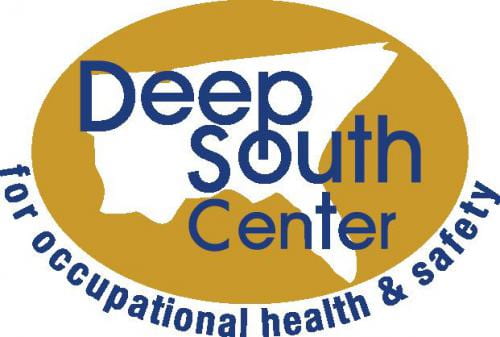Learn more about different types of masks and face coverings, how they protect against infection from COVID-19, and how to select which type of mask to wear from Dr. Claudiu Lungu, Professor of Environmental Health Sciences at the University of Alabama at Birmingham School of Public Health. This video was created in partnership between the Alabama Regional Center of Infection Prevention and Control Training and Technical Assistance (ARC IPC) and the Deep South Center for Occupational Health and Safety.
Epidemiology 101: Fundamental Concepts for Understanding the Pandemic (February 24, 12pm CT)
Understanding epidemiologic concepts has been consistently and increasingly important in personal and professional decision-making as the pandemic has continued and all elements of it have evolved. Join Dr. Stella Aslibekyan as she presents several tools to help you read and think critically about pandemic-related news from an epidemiological perspective. The webinar will focus on concepts like herd immunity, vaccine efficacy, and endemic infection, and what they mean for COVID-19 control. There will also be a focus on disentangling correlation from causation.
This webinar is co-sponsored by Alabama Regional Center for Infection Prevention and Control Training and Technical Assistance, Region IV Public Health Training Center, and Deep South Center for OH&S .
The Deep South Center for OH&S is an approved provider of continuing education units for nurses by the AL Board of Nursing (Provider ABNP0420 Expiration Date 12/22/2025) and has awarded this program 1.0 contact hours.

Face Masks: Materials, Fit, and Filtration during the COVID-19 Pandemic (February 17, 2022 12pm CT)
Masking has become one of the most pervasive topics since the early days of the COVID-19 pandemic. Join Dr. Jeremy Walker, MD, Assistant Professor, Division of Infectious Diseases at the UAB Heersink School of Medicine, as he presents on different types of masks, fit, filtration, and behaviors in wearing masks, as well as his current research on mask usage. Specific learning objectives include understanding the distinction between airborne and droplet spread of viral pathogens, recognizing important considerations when choosing a mask, and data on the effectiveness of masking in decreasing viral spread. Nursing CEUs are pending for this event.
The Deep South Center for OH&S is an approved provider of continuing education units for nurses by the AL Board of Nursing (Provider ABNP0420 Expiration Date 12/22/2025) and has awarded this program 1.0 contact hours.


Using QATs, Hydrogen Peroxide and Phenol as Disinfectants Safely in Schools and Healthcare
Proper disinfectant usage is of paramount importance in the fight against COVID-19 and other viruses. Join Dr. Ziad Kazzi from Emory University as he shares with the ARC IPC his expertise on three common disinfectants: Quaternary Ammonium Compounds (QATs), Hydrogen Peroxide and Phenol. Dr. Kazzi will explain how and why to learn more about and properly, safely use these chemicals to disinfect against COVID-19 and other viruses.
Omicron’s Impact
This past week the U.S. reported a record single-day number of daily Covid cases, with more than 1 million new infections, according to data compiled by Johns Hopkins University, as the highly infectious omicron variant continues to spread throughout the country and beyond. The The Omicron variant continues to shatter records in the U.S. We’re learning more about the new variant, and, so far, it seems to spread faster but cause less severe illness than previous variants. There is a lot of speculation about the Omicron surge and its aftermath. To help us answer these questions, and for a look at how 2022 might unfold, we invited Dr. Suzanne Judd to join us for this podcast. Dr. Judd is the Director of the Lister Hill Center for Health Policy and a Professor in the School of Public Health at UAB.
Thank you to our co-sponsor for this podcast, the Alabama Public Health Training Network at the Alabama Department of Public Health a community-based training partner of the Region IV Public Health Training Center.
Omicron, Booster Shots – Staying Healthy in 2022
This past week the U.S. reported a record single-day number of daily Covid cases, with more than 1 million new infections, according to data compiled by Johns Hopkins University, as the highly infectious omicron variant continues to spread throughout the country and beyond. The U.S. also has the highest seven-day average of daily new cases in any country tracked by Johns Hopkins. Even though Omicron has only been around a short period time, it has quickly made its mark. We have invited Dr. Rachael Lee, Associate Professor in the UAB Division of Infectious Diseases and UAB Health Epidemiologist, to talk about all things related to the Omicron variant.
Thank you to our co-sponsor for this podcast, the Alabama Public Health Training Network at the Alabama Department of Public Health a community-based training partner of the Region IV Public Health Training Center.
The Safe Use of Bleach as a Disinfectant in Schools and Healthcare Settings
In this podcast Dr. Ziad Kazzi of Emory University discusses the use of bleach as a disinfectant, potential health hazards of bleach, and how to use bleach safely in schools and healthcare settings.
List N: Disinfectants for Coronavirus (COVID-19) – (EPA) https://www.epa.gov/coronavirus/about…
FDA (Safely Using Hand Sanitizers) – https://www.fda.gov/consumers/consume…
CDC (Disinfection and Sterilization) – https://www.cdc.gov/infectioncontrol/…
American Academy of Pediatrics (Healthy Children) – Cleaners, Sanitizers, and Disinfectants – https://www.healthychildren.org/Engli…
Pediatric Environmental Health Specialty Units (PEHSU) Safer Disinfectant Use – https://www.pehsu.net/Safer_Disinfect…
American College of Medical Toxicology Safe Disinfectant Use- https://www.acmt.net/Safer-Disinfecta…
Using Disinfectants Safely in Schools and Healthcare Settings
In this podcast Dr. Ziad Kazzi of Emory University introduces listeners to the basics of cleaning including disinfection and sterilization as well as the proper and safe use of disinfectants to prevent infectious disease transmission.
List N: Disinfectants for Coronavirus (COVID-19) – (EPA) https://www.epa.gov/coronavirus/about…
Establishing an Effective Infection Prevention and Control Program: The Starting Point
There are many components of an effective infection prevention and control program. The IPC risk assessment is the starting point for creating an IPC program. A risk assessment is used to identify important infection control issues in your organization and determine goals to include in your infection prevention and control plan. Per The Joint Commission, an annual infection prevention and control (IPC) risk assessment is required to define programmatic goals and objectives and to provide a framework for identifying gaps in services, safety or data as well as tracking progress in meeting specific goals. Today, we are joined by Janet Chance, Director of Infection Prevention, Accreditation, Quality at Cullman Regional Medical Center, and Meredith Lutz, Chief Quality Officer, Medical West Hospital Authority, to discuss risk assessment and planning for infection prevention and control specialists.





